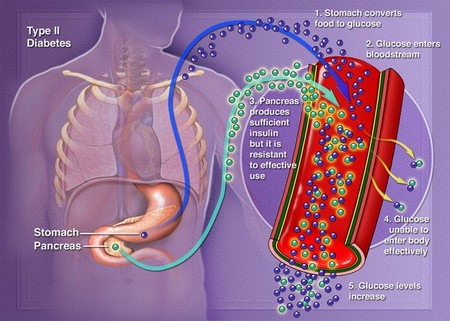This is the time when children will begin to accept full responsibility for managing their diabetes. A young person with a driver’s license, a pack of college applications in a folder, and a tuxedo or prom dress should be responsible for all aspects of diabetes care—still with occasional parental supervision and the knowledge that if trouble crops up, you will be there to help.
Adolescence is a time of testing one’s limits: outright rebellion, stubbornness, rapid vacillation between maturity and childishness, hand-wringing anxiety and adult composure, tears and laughter. This is completely normal, but the teenage years can and will have an effect on diabetes, which may be somewhat more difficult to control for a number of reasons:

- Teenagers’ hormones undergo rapid and drastic changes.
- They often rebel against the values they grew up with, which might include what their parents have taught them about diabetes care.
- They tend to test the limits of what is socially appropriate and acceptable, and they often stretch common sense to its outermost boundary.
- Adolescents hate being different from their friends and associates and therefore might reject any part of diabetes care that they see as “different,” which is almost all of it.
- Adolescents are champion sleepers and often do not get out of bed until noon or later on weekends. Diabetics can’t be allowed to do this because they cannot miss meals, snacks, and insulin injections. But you can compromise with them: letting them sleep an hour later than usual, making sure they take their insulin and eat breakfast, and then sending them back to their room to sleep or laze about until the rest of their pals are awake.
Some of this behavior is acceptable and temporary and can probably be moderated with parent-child conversations or family conferences, but if you notice your teenager doing things that are clearly dangerous or self-destructive, you must get help: psychological counseling or family therapy.
If your adolescent girl’s diabetes is in poor control, menarche (onset of menstruation) may be delayed for a while. Although this may be anxiety-producing for her, if her thyroid gland and other hormones are functioning normally, she will begin to menstruate as soon as her disease is in better control. Moreover, delayed menarche may act as a spur for her to take better care of herself.
This is also the time when children can start going to the doctor alone; therefore, their relationship with their parents will change. They will discuss things that you may never know about (a physician told something in confidence may not reveal it), and your teenager may make decisions with the physician that you had no part in. This will be hard for you to accept but probably no more difficult than watching your kids go out on dates.
They are separate people. They always have been, of course, but now they are becoming capable of living separate from you. They are now responsible for their own diabetes management.
Many adolescent activities revolve around food, so teenage diabetics need flexible meal plans that allow them to eat the way their peers do. There are many popular foods that can be fitted into diabetic meal plans: pizza, small hamburgers, diet soda, even french fries.
Teenagers also are old enough to plan their day and think about how much insulin they will need to cover their activities during the day. At first, you can go over their plans the night before, but by the time they are juniors and seniors in high school, they should be able to figure things out themselves. After all, in only a year or two, they’ll probably be on their own in a college dorm or apartment.